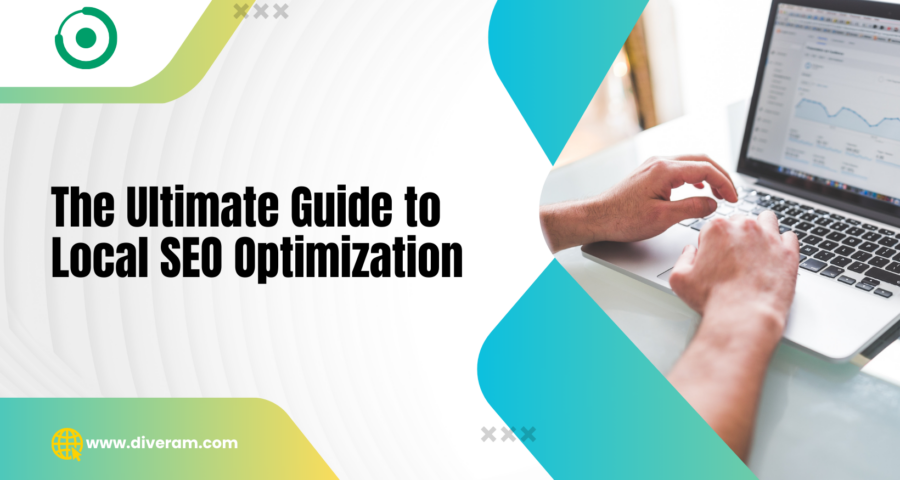Local SEO 101: Everything You Need to Know

As a business owner, you probably already know the importance of having an online presence. But did you know that having a strong local SEO strategy can make a huge difference in your business’s success? In this blog, we’ll explore why local SEO matters and how you can optimise your website for local search.
First things first, what is Local SEO?
Local SEO is the process of optimising your website to improve its visibility in local search results. When someone searches for a product or service in their local area, search engines like Google use a variety of factors to determine which businesses to show in the search results. By optimising your website for local search, you can improve your chances of appearing at the top of the results page, and ultimately drive more traffic to your website and increase sales.
So, why does Local SEO matter?
- Local search is becoming more important
In recent years, there has been a significant increase in the number of people searching for local products and services online. In fact, according to Google, nearly 46% of all searches have local intent. This means that if you’re not optimising your website for local search, you’re missing out on a huge opportunity to reach potential customers in your area.
- Local search has a high conversion rate
One of the biggest advantages of local SEO is that it can lead to higher conversion rates. When someone searches for a product or service in their local area, they are often ready to make a purchase. According to HubSpot’s findings, 72% of consumers who conduct a local search visit a store within 5 miles of their present location. By appearing at the top of local search results, you can increase your chances of attracting these potential customers and turning them into paying customers.
- Local SEO is cost-effective
Compared to other marketing strategies like pay-per-click advertising, local SEO is relatively low cost. While there is an initial investment in optimising your website for local search, the long-term benefits can be significant. Once you’ve optimised your website for local search, you can continue to attract local customers without having to spend a lot of money on advertising.
Local search optimization strategies for your website
Now that we’ve covered why Local SEO matters, let’s take a look at some of the strategies you can use to optimise your website for local search:
- Optimise your website for local keywords
The first step in optimising your website for local search is to identify the keywords that potential customers in your area are searching for. You can use tools like Google’s Keyword Planner to research local keywords and phrases. Once you’ve identified these keywords, make sure to incorporate them into your website’s content, meta descriptions, and title tags.
- Claim your Google My Business listing
Google My Business is a free tool that allows you to manage your business’s presence on Google. By claiming your Google My Business listing, you can ensure that your business information is accurate and up-to-date, and increase your chances of appearing in local search results.
- Build local citations
On the internet, a citation refers to any instance where your business’s name, address, and phone number (NAP) are mentioned. Building local citations on websites like Yelp, Yellow Pages, and other local directories can help improve your business’s visibility in local search results.
- Use schema markup
Schema markup is a type of code that helps search engines understand the content on your website. By using schema markup to highlight your business’s NAP, hours of operation, and other important information, you can increase your chances of appearing in local search results.
- Encourage customer reviews
Customer reviews are an important factor in local search rankings. Encouraging customers to leave reviews on websites such as Google My Business, Yelp, and Facebook is crucial as customer reviews play a vital role in local search rankings.
Not only will this help improve your search rankings, but it can also help build trust and credibility with potential customers who are reading the reviews.
- Use location-based landing pages
Creating location-based landing pages can also be an effective strategy for optimising your website for local search. These pages should include local keywords, information about your business’s location, and testimonials or customer reviews from customers in the area.
- Maintain a strong social media presence
While social media may not directly impact your website’s search rankings, it can help increase your business’s visibility in local search results. It is essential to maintain a consistent social media presence by frequently sharing updates and engaging with your followers on social media platforms like Facebook, Instagram, and Twitter.
Conclusion
In conclusion, Local SEO is an essential part of any successful online marketing strategy. By optimising your website for local search, you can increase your visibility in local search results, attract more local customers, and ultimately grow your business. By following the tips and strategies outlined in this blog, you can improve your website’s local SEO and take your business to the next level.




